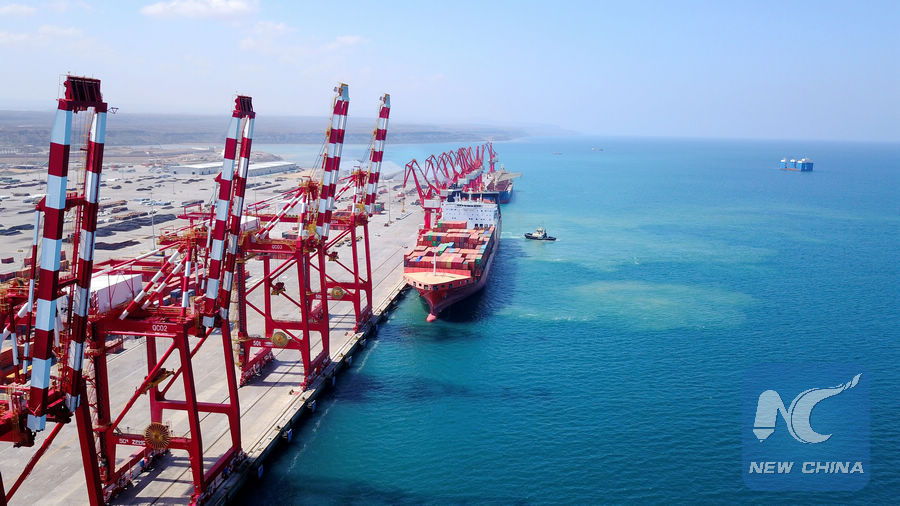
Aerial photo taken on Nov. 30, 2017 shows the Doraleh Multi-Purpose Port in Djibouti. Djibouti is not only a hub of maritime traffic and trade between Europe, Asia and Africa, but also an important gateway to Africa for the construction of the 21st-Century Maritime Silk Road. In recent years, a number of China-Djibouti cooperation projects have made important contributions to promoting China-Djibouti economic and trade cooperation. (Xinhua)
KIGALI, April 29 (Xinhua) -- The China-proposed Belt and Road Initiative (BRI) will promote development, Rwandan analysts told Xinhua recently, expecting Rwanda to seize the opportunity of the BRI.
"BRI is an ambitious project that will drive economic development across the globe," said Ismael Buchanan, senior lecturer and researcher at the University of Rwanda, adding that the "great idea" seeks to reduce trade costs and improve connectivity, thus, leading to higher cross-border trade and investment.
The initiative will contribute to sustainable economic growth, poverty reduction, employment creation and integration of the world, he said.
Ladislas Ngendahimana, a political analyst and secretary general of Rwandan Association of Local Government Authorities, expected Rwanda to leverage new opportunities offered by the BRI in areas including infrastructure development, noting that the BRI facilitates political and economic openness and integration.
He also expected Rwanda's private sector to take the opportunity of the BRI to position themselves in new business arena through integration and globalization.
The three-day Second Belt and Road Forum for International Cooperation concluded Saturday in Beijing. It drew about 5,000 participants from more than 150 countries and 90 international organizations, including nearly 40 heads of state and government.
The initiative, proposed by China in 2013, has grown into one of the most promising platforms for international cooperation, forging a new pathway toward inclusive globalization that delivers shared benefits.

